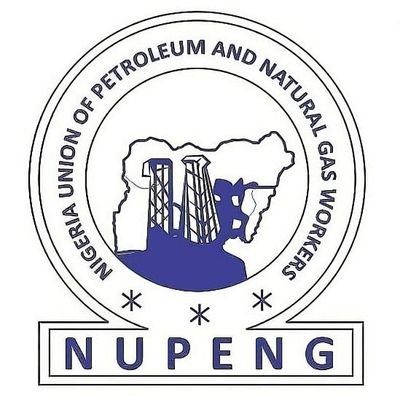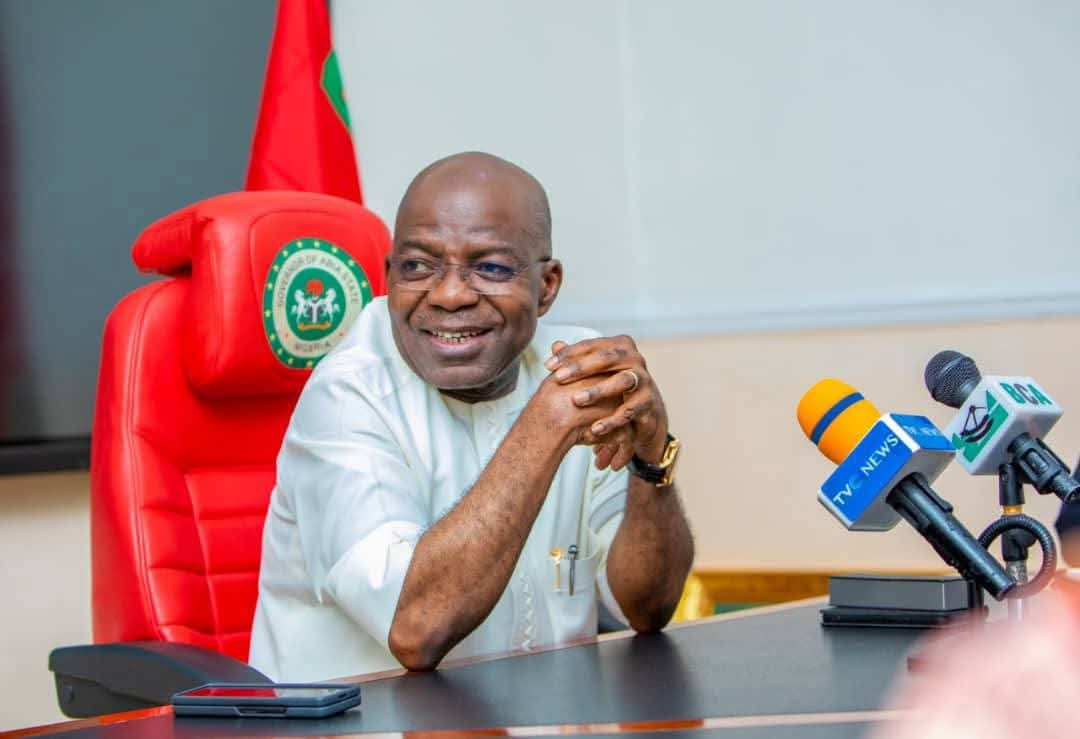In a momentous occasion that underscores decades of transformative impact on Nigeria’s financial landscape, Afrinvest (West Africa) Limited is gearing up to mark its 30th anniversary while unveiling the 20th edition of its flagship Nigerian Banking Sector Report (BSR). This dual celebration, scheduled for September 2025, highlights Afrinvest’s enduring legacy as a pioneer in investment banking, asset management, and financial advisory services. The event, themed “ACT-BOLD: Turbocharging Nigeria to a New Growth Frontier,” promises to deliver incisive insights into the banking sector’s role in propelling the nation toward its ambitious $1 trillion economy goal by 2030. As Nigeria navigates a complex economic terrain marked by inflation, currency fluctuations, and global uncertainties, this report arrives at a pivotal juncture, offering stakeholders a roadmap for resilient growth.
Founded in 1995 as Securities Transactions & Trust Company Limited (SecTrust), Afrinvest has evolved from a modest brokerage and research firm into a powerhouse capital market holding company. The rebranding in 2005, following a merger with the Nigerian arm of the UK-based Afrinvest Limited, marked a strategic pivot toward international standards and broader service offerings. Today, Afrinvest operates through subsidiaries like Afrinvest Securities Limited, Afrinvest Asset Management Limited, and Afrinvest Capital Limited, providing end-to-end solutions in investment banking, securities trading, asset management, research, and trust services. With offices in Lagos, Abuja, Port Harcourt, Kano, and beyond, the firm has structured landmark deals, including the first Eurobond issuance by a sub-Saharan African corporate outside South Africa (Guaranty Trust Bank’s $350 million in 2007) and the largest listing on the Nigerian Exchange Limited (NGX) – Dangote Cement’s N2.1 trillion in 2010.
The 30th anniversary is more than a retrospective; it’s a testament to resilience amid Nigeria’s economic volatility. Group Managing Director Ike Chioke emphasized, “Afrinvest at 30 is not just a celebration of longevity; it is proof of resilience, innovation, and our unyielding commitment to building a more inclusive and prosperous Nigerian economy.” Chioke’s vision aligns with the firm’s role in shaping policy through data-driven insights. Deputy Group Managing Director Victor Ndukauba added, “This milestone gives us a moment to take stock of our journey, from one of the earliest Nigerian stock brokerage firms to the present, where we proudly stand as an advisory partner of choice.” Under their leadership, Afrinvest has navigated challenges like the 2008 global financial crisis, the 2016 recession, and the COVID-19 pandemic, consistently delivering value to clients ranging from high-net-worth individuals to governments.
The Nigerian Banking Sector Report, now in its 20th iteration, has been a cornerstone of Afrinvest’s research arm since its inception in 2006. This annual publication has evolved into an indispensable resource for regulators, investors, and policymakers, offering comprehensive analyses of the sector’s performance, trends, and challenges. Past editions have influenced reforms, such as the 2010 capital requirements post the 2004/2005 recapitalization that consolidated the industry from 89 to 25 banks. The 2022 edition, “Brace for Impact,” warned of deteriorating fundamentals amid global slowdowns, while the 2024 report, themed “Bank Recapitalisation: Catalyst for a $1 Trillion Economy,” dissected the Central Bank of Nigeria’s (CBN) March 2024 guidelines raising minimum capital to N500 billion for international commercial banks. These reports have not only tracked metrics like non-performing loans (NPLs) and profitability but also advocated for transparency and innovation, earning Afrinvest acclaim as a thought leader.
The 2025 BSR builds on this legacy, focusing on bold actions to diversify Nigeria’s economy beyond oil dependency. Managing Director of Afrinvest Consulting Limited, Abiodun Keripe, noted, “The BSR has become a trusted resource for regulators, investors, and development partners. This year’s theme speaks directly to the urgency to diversify the economy and harness the power of seven high-impact sectors: Agriculture, Creatives, Tourism & Hospitality, Banking & Finance, Oil & Gas, Logistics, and Domestic Manufacturing.” The report will analyze how banks can turbocharge growth in these areas, amid a macroeconomic backdrop of 3.4% GDP expansion in 2024 – the highest since 2014 excluding COVID rebounds – driven by services (up 31.2% in Q1 2024) and non-oil sectors.
Nigeria’s banking sector has demonstrated remarkable resilience, contributing 5.01% to GDP with a nominal value of N13.7 trillion in 2024. Total assets reached N107.3 trillion by November 2023, surging 50% year-on-year, while the top five banks (Access, Zenith, GTCO, UBA, First Bank) hold over N146 trillion in assets. Profit after tax for listed banks hit N4.8 trillion in 2024, a 53.5% increase from N3.1 trillion in 2023, fueled by high interest income from the CBN’s Monetary Policy Rate (MPR) hikes to 27.5% by November 2024 and FX revaluation gains. Return on average equity (ROAE) improved to 31.3%, with capital adequacy ratios at 22.3%. Deposits mobilized N111.9 trillion (up 35.6%), and loans grew 37.6% to N51.4 trillion, reflecting CBN’s push for credit penetration.
Yet, challenges abound. Inflation peaked at 34.6% in November 2024, eroding purchasing power and squeezing margins. Naira depreciation – from N460/$ in 2023 to over N1,600/$ in parallel markets – triggered capital outflows and FX volatility, with foreign investors repatriating funds amid US rate hikes. The 2024 recapitalization, mandating N10-500 billion based on license type (deadline March 2026), has spurred mergers, rights issues, and public offers. Banks like Access Holdings raised N351 billion via rights issues, but smaller ones face consolidation pressures. NPLs averaged 4.1% in 2021 but rose amid economic stress; however, regulatory forbearance and AMCON’s legacy (N15 billion bad loans) provide buffers.
Fintech integration has revolutionized the sector, with mobile banking and digital wallets driving inclusion. Firms like Moniepoint achieved unicorn status with $110 million funding in 2024, while Carbon’s AI-powered SME platform post-Vella Finance acquisition enhances lending. The Electronic Foreign Exchange Matching System (EFEMS) and EMTL (N50 levy on transfers over N10,000) aim for transparency and revenue, but cash shortages and Heritage Bank’s license revocation underscore vulnerabilities. The sector’s 30.9% real growth in 2024, per NBS, outpaced overall GDP at 3.4%, with services like ICT leading.
The 2025 BSR will project how these dynamics evolve. Analysts forecast 3.6% GDP growth (World Bank), with inflation easing to mid-20s via sustained MPR tightening. Banking assets may grow 20% y-o-y (from 55% in 2024), moderated by naira stabilization. Profits could soften due to windfall taxes on FX gains (50% proposed), high CRR (27.5%), and AMCON levies, but net interest margins remain supportive at “higher for longer” rates. The National Credit Guarantee Company, launching Q2 2025, will expand SME credit, boosting inclusion for 87 million in poverty (38.9% rate).
Afrinvest’s event will feature panel discussions with experts like Bismarck Rewane (Financial Derivatives) and Doyin Salami (ex-CBN MPC), keynote from CBN or Finance Ministry officials, and networking. It aligns with government reforms: subsidy removal freed N7 trillion since 2010, FX unification eliminated premiums, and tariff hikes improved power sector viability. Yet, insecurity, floods, and oil production dips (below 1.5 million bpd) pose risks. The report advocates public-private synergies, emphasizing banking’s role in funding agriculture (down to 0.2% GDP growth in Q1 2024) and manufacturing.
Looking ahead, the BSR envisions a sector turbocharged by digital innovation, recapitalization, and diversification. With 3.5 million annual labor entrants, banks must prioritize job-creating sectors. Afrinvest’s 30 years – from SecTrust’s early brokerage to global deals – position it to lead this charge. As Chioke challenges, “Act boldly, think differently, and work collaboratively to unlock Nigeria’s true potential.” This unveiling isn’t just a report; it’s a call to action for a bolder financial future.
In the broader context, Nigeria’s economy, Africa’s largest, faces structural hurdles but shows promise. The World Bank’s Nigeria Development Update (May 2025) notes fiscal deficits narrowing to 3.0% of GDP in 2024 via revenue surges to N31.9 trillion (11.5% GDP). Current account surpluses hit 3.0% in 2024, aided by oil exports. However, poverty affects 87 million, with human capital index at 36% – seventh-lowest globally. Reforms like NEP (5.9 million electrified) and CPF (2021-2024) target human capital and diversification.
Banking’s interplay with the economy is profound. High MPR curbs inflation but raises borrowing costs, potentially stifling SMEs (70% of employment). Yet, it boosts NII, with 2024 earnings up via FX gains. Fintechs like Opay and PalmPay processed billions in transactions, reducing unbanked rates from 36% to 25%. The 2025 outlook: stabilized naira (CBN interventions), lower inflation (via Dangote Refinery’s local supply), and growth in non-oil exports.
Afrinvest’s report will delve into sectoral synergies. Agriculture, employing 35% but contributing 21% GDP, needs N1 trillion credit; banks can lead via guarantees. Creatives and tourism, post-COVID, offer youth jobs. Oil & gas, despite volatility, remains fiscal anchor. Logistics and manufacturing require infrastructure – banks financed N228 billion Benin-Asaba Expressway in 2025.
Challenges persist: cyber threats (up 200% in 2024), climate risks (floods hit 2024 output), and geopolitical tensions (Ukraine war spiked food prices). Banks’ CAR at 22.3% buffers shocks, but NPLs could rise if growth lags. The BSR recommends AI-driven risk management, green financing (59% banks have climate strategies, per EIB 2023), and diaspora remittances (N10 trillion annually).
Afrinvest’s journey mirrors Nigeria’s: from post-independence optimism to digital era. Early reports like 2013’s global landscape analysis predicted tightening; 2018’s “Economic Agenda for a New Government” influenced elections. The 20th edition continues this, urging bold reforms for inclusive growth.
As the event approaches, anticipation builds. Stakeholders expect actionable insights: how recapitalization aids $1tn goal, fintech-bank collaborations, and policy tweaks for stability. With 90.5 million in labor force, banking must drive 7.4% annual growth (Afrinvest estimate) for well-being.
In conclusion, Afrinvest’s 30th anniversary and 20th BSR symbolize enduring commitment. As Nigeria eyes 2030, the sector – resilient amid headwinds – holds keys to prosperity. Bold actions today will turbocharge tomorrow’s frontier.








